
Blake builds and invests in companies that move atoms and bits. His recent investments include Neuralink, Vial, Benchling and Freenome. Blake was most recently a General Partner at GV for a decade where he led investments in tech and healthcare companies. Some of his biotech investments include Forty Seven (Nasdaq: FTSV), Arcus (Nasdaq: RCUS), Denali (Nasdaq: DNLI), and Grail (acquired by Illumina). Blake’s incubations include Pact Pharma, a neoantigen T cell therapy company.
Blake received a PhD and MS in bioengineering from Stanford University and holds a BS in biomedical engineering and BS in economics from Duke University.

Brian Armstrong is the co-founder and CEO of Coinbase, having grown it from inception to public company with thousands of employees and billions of dollars in revenue.
He is deeply passionate about accelerating science and improving human healthspan. He brings experience in software, machine learning, organization design, fundraising, leadership, and team building.
He holds a master’s degree in computer science and a bachelor’s degree in economics from Rice University.
.jpg)
Cathy leads NewLimit’s operations, leveraging her technical training, operational expertise, and passion for company culture to build, support, and inspire top-performing teams to deliver value in complex, unknown territory.
Cathy is a proven leader in healthcare, with broad experience and deep expertise developing medicines, diagnostics, and digital health solutions. Prior to NewLimit, Cathy was a VP and Global Development Lead at GSK. Before that, she led US Operations and Pharma partnering for a Diagnostics company developing and commercializing novel imaging biomarkers and technologies. Cathy is passionate about inspiring and developing employees, so they can thrive in their careers.
Cathy received a PhD in Neuroscience from the University of California San Francisco and completed postdoctoral fellowships in Neuroscience at both the University of Cambridge and UC Berkeley.

Jacob uses genomics and machine learning methods to identify and manipulate the genetic programs that define cell identity.
Prior to NewLimit, Jacob led a research laboratory focused on epigenetic reprogramming as a Principal Investigator and Computational Fellow at Calico. His program developed methods to infer and perturb cell identity programs and leveraged these tools to discover reprogramming strategies that restore youthful features in aged cells.
Jacob received a Ph.D. in stem cell biology from the University of California San Francisco.

Alex Marson is a professor at UCSF, scientific director of human health at the Innovative Genomics Institute (IGI), and head of the Gladstone-UCSF Institute of Genomic Immunology. Dr. Marson’s research goal is to understand the genetic circuits that control human immune cell function, and his team has pioneered new CRISPR gene editing technologies that offer more precise ways to rewrite DNA programs in human immune cells.
Dr. Marson received an AB and an MD from Harvard, a PhD from MIT, and completed his internal medicine residency at Brigham and Women’s Hospital, and an infectious diseases fellowship at UCSF.
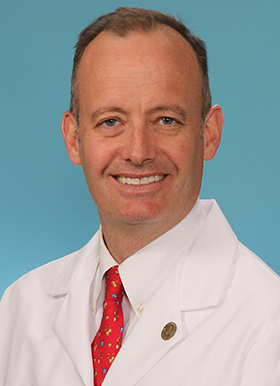
Dr. Benjamin Humphreys received his AB from Harvard college and his M.D. and Ph.D. degrees from Case Western Reserve University as part of the Medical Scientist Training Program. He trained in internal medicine at Massachusetts General Hospital and in nephrology at Brigham and Women’s Hospital and Massachusetts General Hospital. He was a member of the faculty at Harvard Medical School from 2005 – 2015, rising to the rank of Associate Professor.
In 2015, Dr. Humphreys moved to Washington University in St. Louis, where he is Chief of the Division of Nephrology and is the Joseph Friedman Professor of Renal Diseases. Dr. Humphreys was also the cofounder of Chinook Therapeutics, acquired by Novartis in 2023.

Dr. E. John Wherry is the Barbara Schiffrin President’s Distinguished Professor at the Perelman School of Medicine at the University of Pennsylvania. John also serves as the Chair of the Department of Systems Pharmacology and Translational Therapeutics and the Director of the Institute for Immunology at the Perelman School of Medicine.
John’s work has pioneered the field of T cell exhaustion and revealed the molecular mechanisms of diverse T cell identity programs. Among other contributions, his group has defined the transcriptional program of T cell exhaustion, revealed the functional characteristics of exhausted T cells, and discovered the role of inhibitory receptors such as PD-1 in the exhaustion program. The Wherry lab has demonstrated that exhaustion programs play an important role in limiting the effectiveness of adaptive immune responses to both chronic infection and cancer and explored checkpoint blockade mechanisms to re-invigorate exhausted cells. To enable these discoveries, the Wherry lab has employed emerging epigenetic profiling technologies to define T cell identity programs, identify the molecular drivers of these transcriptional programs, and delineate distinct T cell fates.
Dr. Wherry holds a Ph.D. in Immunology from the Thomas Jefferson University and a B.S. from the Pennsylvania State University.

Hao is a Professor at the University of Texas Southwestern where he holds the The Nancy B. and Jake L. Hamon Distinguished Chair in Therapeutic Oncology Research. In addition to running a prolific research laboratory, Hao cares for hepatocellular carcinoma patients at Parkland Memorial Hospital.
Using the liver as a model system, the Zhu laboratory is trying to elucidate how injury, regeneration, and wound healing influence organ function and cancer formation. They believe that understanding somatic mosaicism will be a key genetic strategy to deconvolute the complexity of wound healing and are using human genomic approaches, in vivo genetic screening, and lineage tracing to understand the functional implications of somatic mosaicism in chronic liver disease and liver cancer.
Hao holds a B.S. in biology from Duke University and an M.D. from Harvard Medical School and MIT. He underwent clinical training in internal medicine at the University of California, San Francisco, and medical oncology at the Dana-Farber Cancer Institute. Dr. Zhu completed postdoctoral research in George Q. Daley’s laboratory at Boston Children’s Hospital.

Mark M. Davis is the Director of the Stanford Institute for Immunology, Transplantation and Infection, a professor of microbiology and immunology, and a Howard Hughes Medical Institute Investigator.
Dr. Davis is well known for identifying many of the T-cell receptor genes, which are responsible for the ability of these cells to recognize a diverse repertoire of antigens. His current research focuses on obtaining a “systems level” understanding of the human immune system, including the steady state and vaccine responses of old and young subjects.
Dr. Davis received a BA from Johns Hopkins University, and a PhD from the California Institute of Technology.

Dr. Grompe is a Professor at Oregon Health and Sciences University, the director of the Oregon Stem Cell Center, and the holder of the Ray Hickey Chair and the Director of the Papé Family Pediatric Research Institute. The Grompe lab is focused on developing cell and gene therapies for genetic disorders, especially metabolic disorders of the liver. Among other accomplishments, the Grompe lab developed the first mouse models that allow for competitive repopulation of hepatocytes and further developed the first humanized liver models.
Dr. Grompe has also served as the co-founder and Chief Scientific Officer of Ambys Medicines and the founder of Yecuris.
Dr. Grompe received his M.D. in 1982 at the University of Ulm Medical School in Germany. He completed training at OHSU and Baylor College of Medicine focused on gene therapy for inherited diseases, particularly liver diseases.
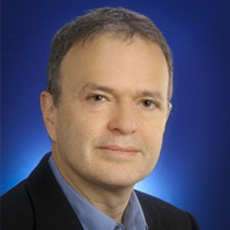
Dr. Breyer received his MD from Harvard in 1979. Following residency and nephrology training he served as Professor of Medicine in the division of Nephrology at Vanderbilt University Medical School from 1985-2007, where his work focused on causes of diabetic kidney disease and hypertension focusing on transgenic mouse models.
Matt moved to Eli Lilly in 2007 to oversee a program to develop bio-therapeutics for diabetic kidney disease. In 2009 he was appointed to the position of CSO, Biotherapeutic Discovery at Eli Lilly where he oversaw preclinical target identification and validation of biologics for chronic kidney, metabolic, neurologic, and oncologic diseases. In April 2018, Dr. Breyer joined the Janssen Cardiovascular and Metabolism group in Boston where he guides discovery and development of new drugs for kidney disease.

Alex oversees NewLimit's talent and people function by working to ensure that top talent enters and stays at the company.
Prior to NewLimit Alex was the Head of Talent at Dave Inc where he built the recruiting function from the ground up. During his time at Uber he led talent teams across the company's new business lines.
Alex is a former CPA and received his BA in Business Economics and Accounting from UC Santa Barbara.

Alexandra supports all vivarium operations and in vivo studies across NewLimit teams.
Prior to NewLimit, Alexandra was an undergraduate research assistant in a behavioral neuroscience lab at the University of California, Riverside. There, she independently studied the role of endocannabinoids in the reward circuit following prolonged abstinence and worked collaboratively to investigate the underlying mechanisms of addiction and possible therapeutic targets.
Alexandra has earned her Bachelor's Degree in Neuroscience from the University of California, Riverside.
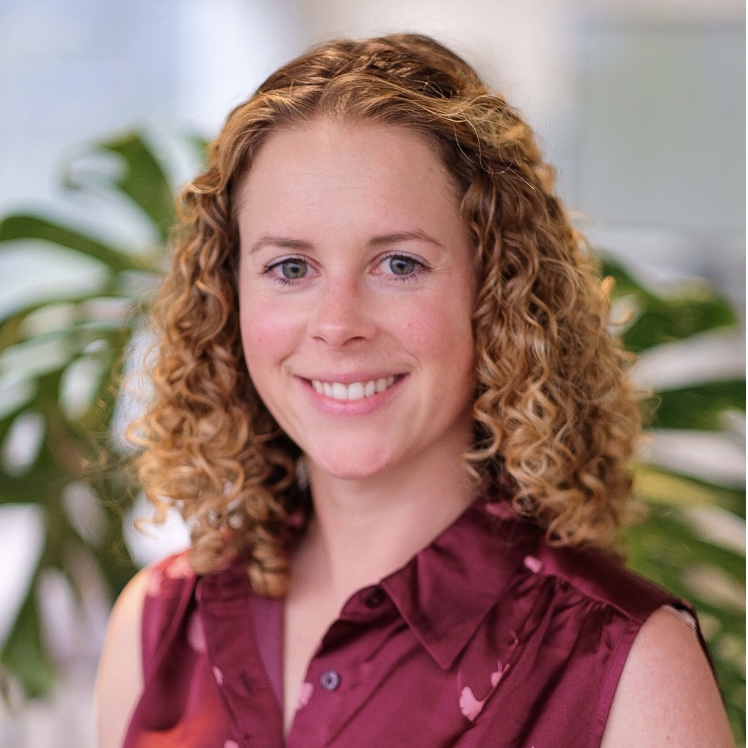
Angela oversees the Immunology team, advancing reprogramming medicines that rejuvenate aged immune cells to address inflammatory and infectious diseases.
Before joining NewLimit, she led Immunology and Synthetic Biology groups at ArsenalBio and directed preclinical development for AB-2100, an integrated cell therapy for kidney cancer.
She earned her PhD in Immunology from Harvard University and her BS from the University of Cape Town.
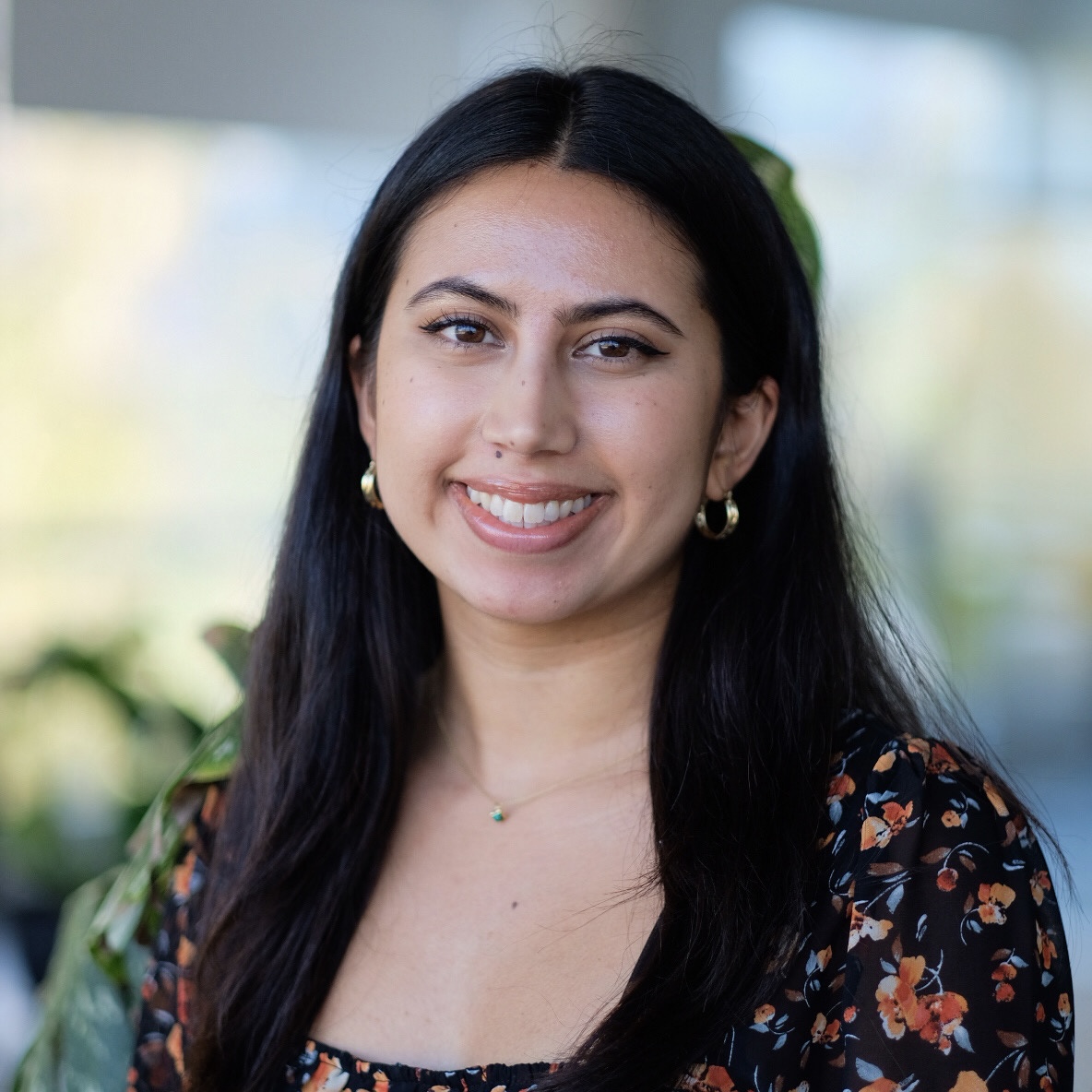
Arshia contributes to the discovery engine at NewLimit by executing lentiviral packaging and single cell functional genomic screens to identify and optimize epigenetic reprogramming factors.
Prior to NewLimit, Arshia worked at Gritstone bio in Vaccine Technology, developing and characterizing self-amplifying mRNA LNP therapeutics for infectious disease and oncology targets.
Arshia received her B.S. in Biomedical Engineering at UC Berkeley in 2023.
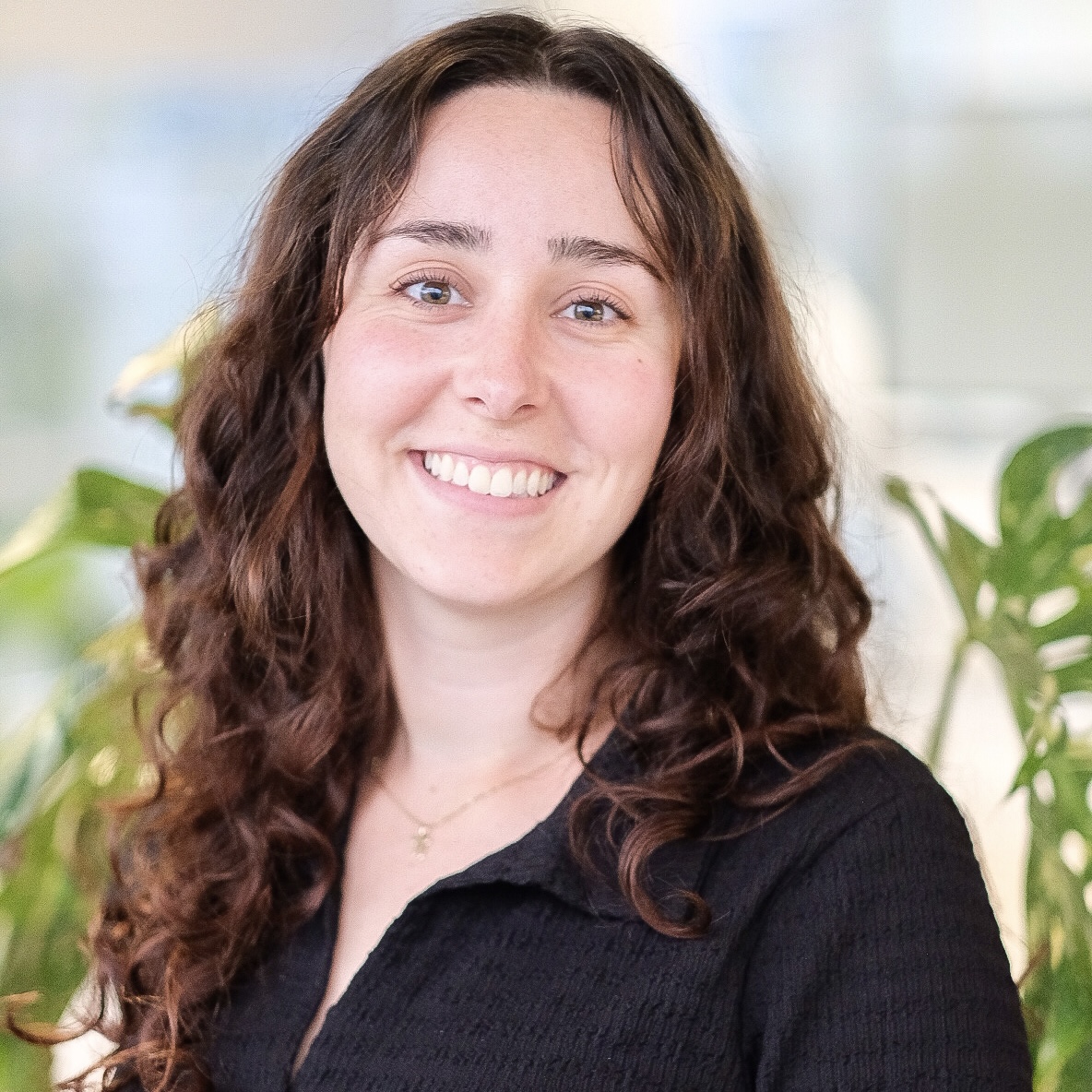
Aviv contributes to the Metabolism team, applying in vivo models and experimental assays to identify epigenetic reprogramming factors to target and treat liver disease.
Prior to NewLimit, Aviv was a researcher in a lab at Stanford University where she worked to develop and apply in vitro and in vivo models to evaluate potential therapeutics and identify candidates with antiviral activity against Dengue virus.
Aviv received a B.S. in Biology from Muhlenberg College in 2023.

Bryan contributes to the Metabolism team developing in vivo mouse models for liver epigenetic reprogramming and downstream assay optimization.
Prior to NewLimit, Bryan worked as a postdoctoral fellow at the University of Florida optimizing protocols for whole brain and skeletal muscle tissue clearing and lightsheet imaging. During his graduate work, Bryan studied changes in skeletal muscle structure and force production in various preclinical neurodegenerative tauopathy models, and interned at Denali Therapeutics characterizing preclinical transgenic murine models for Parkinson's disease risk.
Bryan earned his PhD in Biomedical Sciences and BS in Biochemistry from the University of Florida.

Bryan is a scientist on the Immunology team where he develops in vivo models to test preclinical epigenetic reprogramming interventions.
Prior to NewLimit, Bryan worked with Susan Kaech at the Salk Institute where he studied epigenetic regulation of CD8+ effector and memory T cell formation.
Bryan received a PhD in Biomedical Science and a BS in Human Biology from UC San Diego.

Burak develops and uses single cell technologies and functional genomic techniques that enable large scale screens of epigenetic reprogramming at NewLimit.
Prior to NewLimit, Burak led a cross-functional team at Inscripta and contributed to the development of the first bench-top genome engineering instrument as well as single cell genomic assays for characterizing gene editing outcomes.
Burak received a PhD degree from MIT, a MS degree from Stanford, and a BS degree from METU, all in electrical engineering.
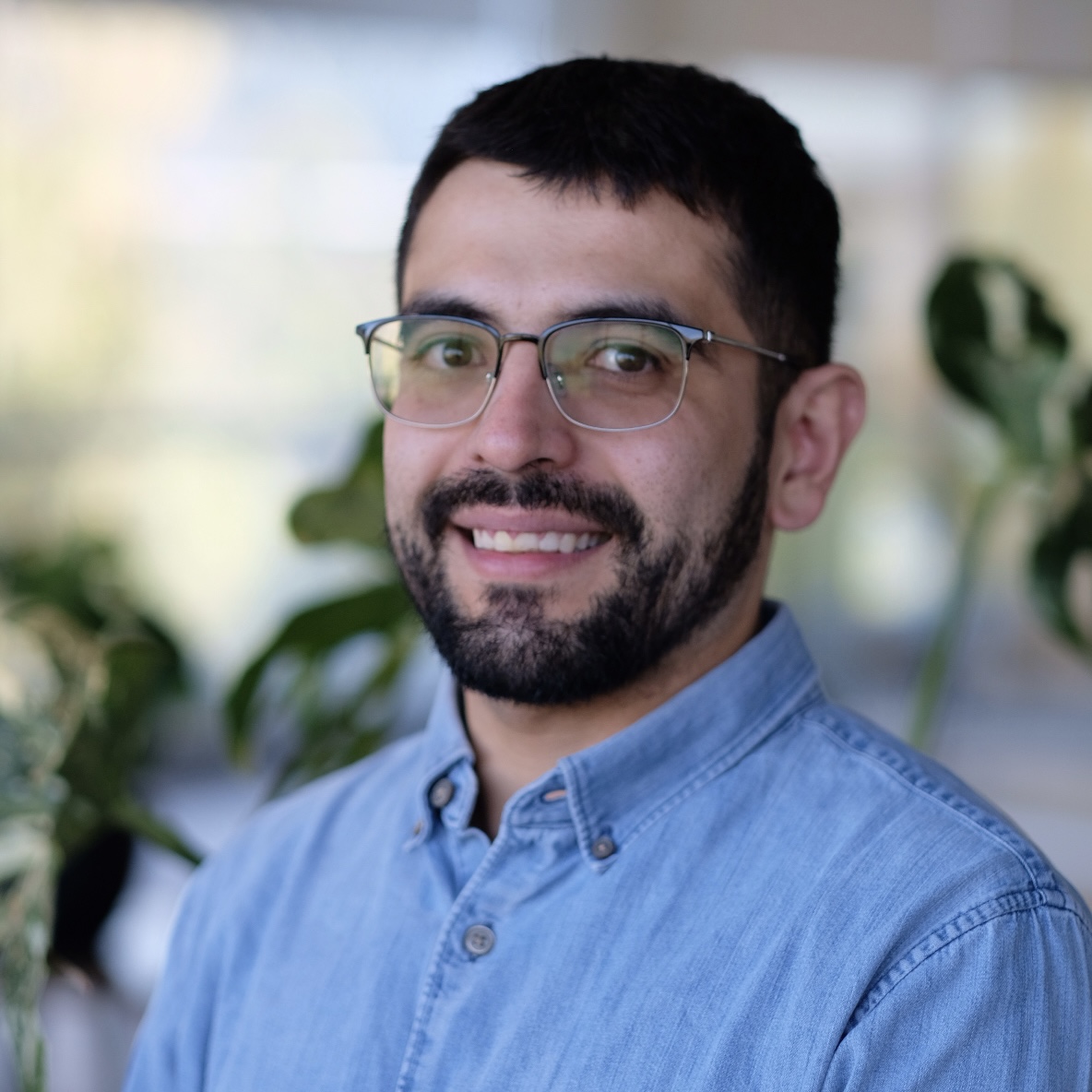
Carlos is a scientist on the Immunology team developing disease models to investigate how aged immune cells contribute to inflammation.
Prior to NewLimit, Carlos was a postdoctoral fellow at The Francis Crick Institute in London, where he developed in vitro assays to study antigen cross-presentation by dendritic cells. His doctoral work at UCSF focused on dendritic cell biology and T cell differentiation in allergic airway disease.
He holds a Ph.D. in Biomedical Sciences from University of California, San Francisco and a B.S. in Biological Engineering from Massachusetts Institute of Technology.
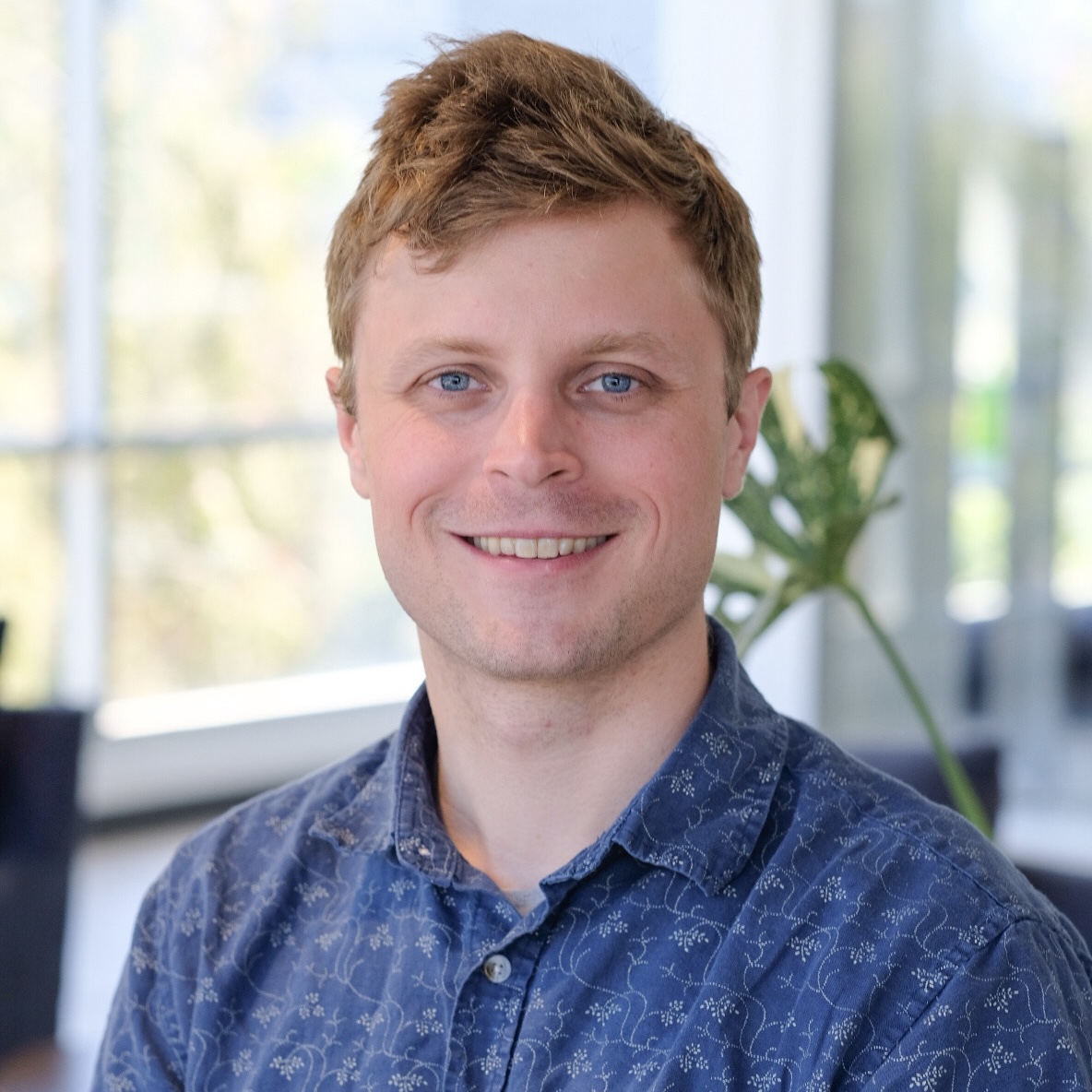
Conner is a Senior Machine Learning Engineer on the Predict team at NewLimit working on building models to predict cellular functions.
Prior to NewLimit, Conner completed his PhD in Computational and Systems Biology at MIT.
Outside of work, Conner enjoys trailing running, rock climbing, and cold plunging.
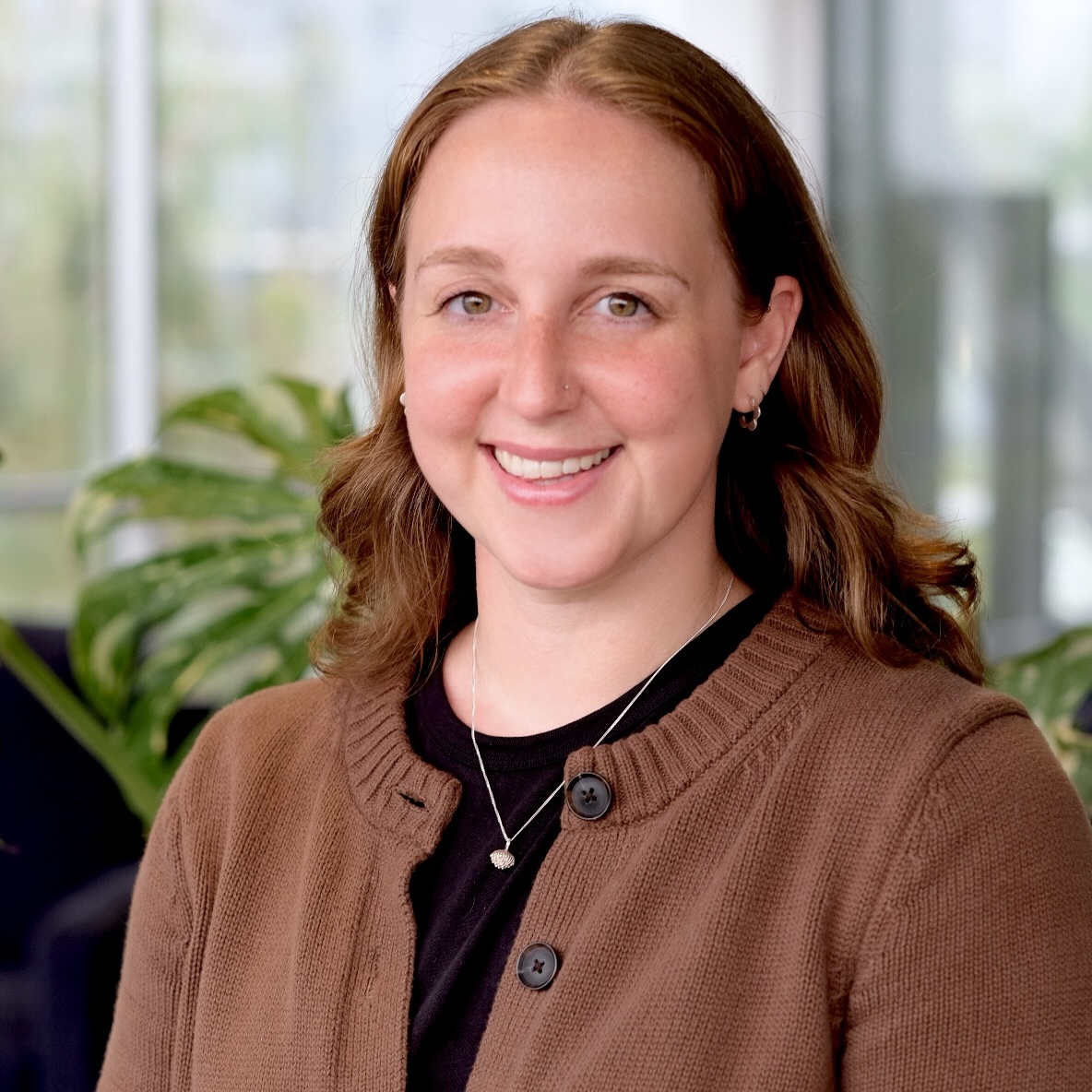
As part of the Metabolism team, Daniella contributes to the development of in vivo and ex vivo assays to discover and evaluate liver-targeting reprogramming medicines.
Before joining NewLimit, Daniella worked as a Scientist at Takeda, where she specialized in preclinical pharmacology for both the Liver and Neurogastroenterology teams. Her previous academic work at Columbia University and Boston Children's Hospital focused on identifying and characterizing features of intestinal glia and neurons in the enteric nervous system.
Daniella holds an MS in Physiology from the University of Michigan and a BA in Neuroscience from Pitzer College.

Dave contributes to the design and execution of single cell functional genomics screens at NewLimit to identify epigenetic reprogramming factors.
Prior to joining NewLimit, Dave worked as a postdoctoral fellow in Paul Khavari's lab at Stanford University using single cell functional genomics screening approaches to identify epigenetic regulators of epithelial homeostasis.
Dave received a Ph.D. in molecular biology from the University of Georgia and a B.S. in biology from the University of Virginia.
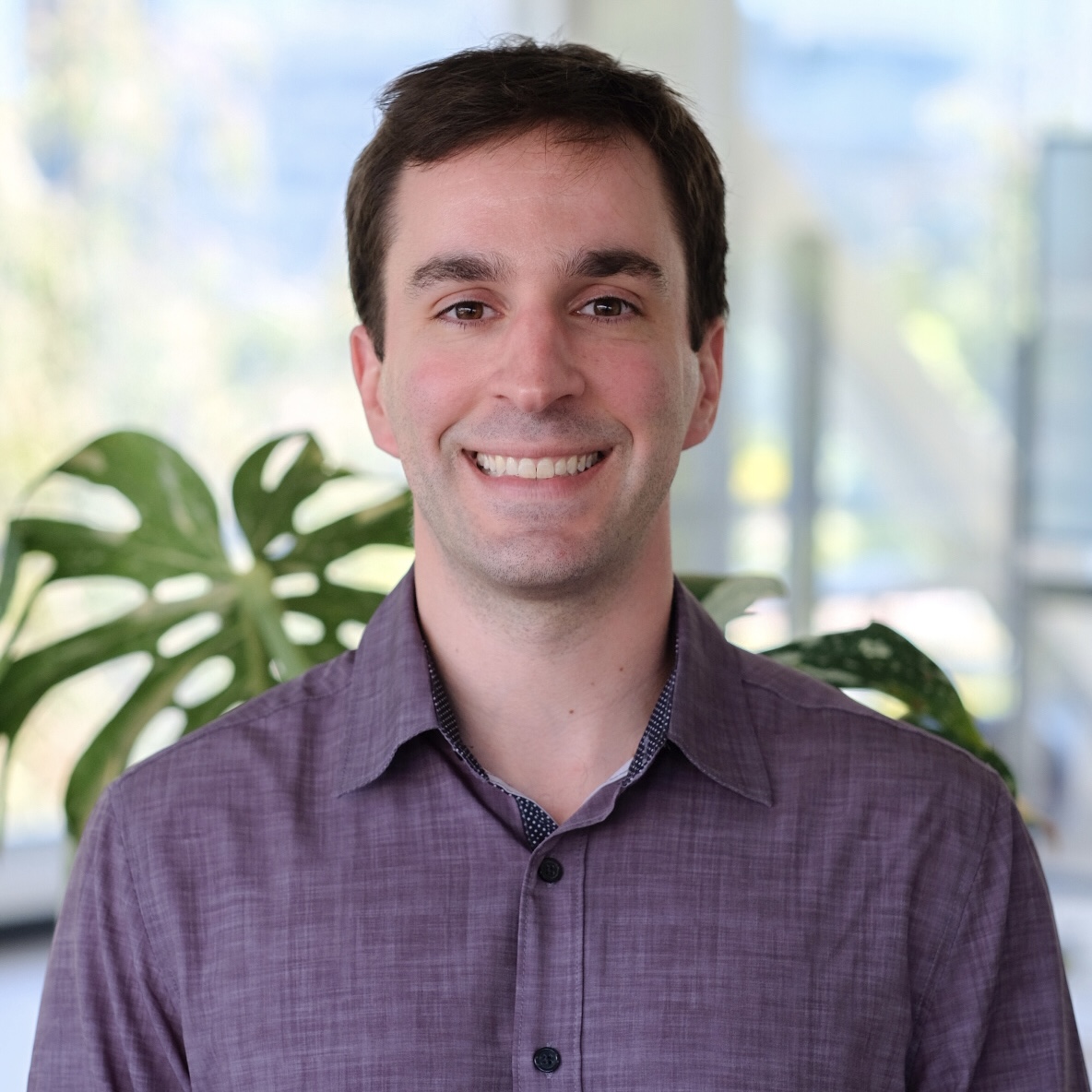
Greg is a scientist on the Vascular team where he develops in vitro and in vivo models to identify epigenetic factors that rejuvenate the vasculature.
Prior to NewLimit, Greg was a scientist at Genentech where he developed regenerative therapies to restore organ function after injury. He completed his post-doctoral training in the laboratory of Dr. Li Qian at UNC Chapel Hill where he investigated fibroblast-to-endothelial cell direct reprogramming.
Greg received his PhD in Physiology, Biophysics, and Systems Biology from Weill Cornell Medicine, and B.S. in Biology from Cornell University.

James contributes to the discovery engine at NewLimit by developing technology for functional genomic screens of epigenetic reprogramming factors with single cell readouts.
Prior to NewLimit, James was a Schmidt Science Fellow in Feng Zhang’s lab at the Broad Institute, where he developed massively-scalable pooled screens to discover novel TF combinations that program human embryonic cells into early blood progenitors. He completed graduate training with Allon Klein and Marc Kirschner at Harvard, where he generated one of the first single cell transcriptomic maps of vertebrate embryonic development.
James completed post-doctoral training at Massachusetts Institute of Technology. He received a PhD in Biological and Biomedical Sciences from Harvard Medical School, and a BS in Biological Sciences from the University of Queensland.

Jenny supports the Immunology Team at NewLimit in developing functional assays to assess immune populations.
Prior to NewLimit, Jenny worked at the Buck Institute for Research on Aging, investigating the gut-brain immune axis in Alzheimer’s Disease.
Jenny received a BA in Biological Sciences from Cornell University in 2021.
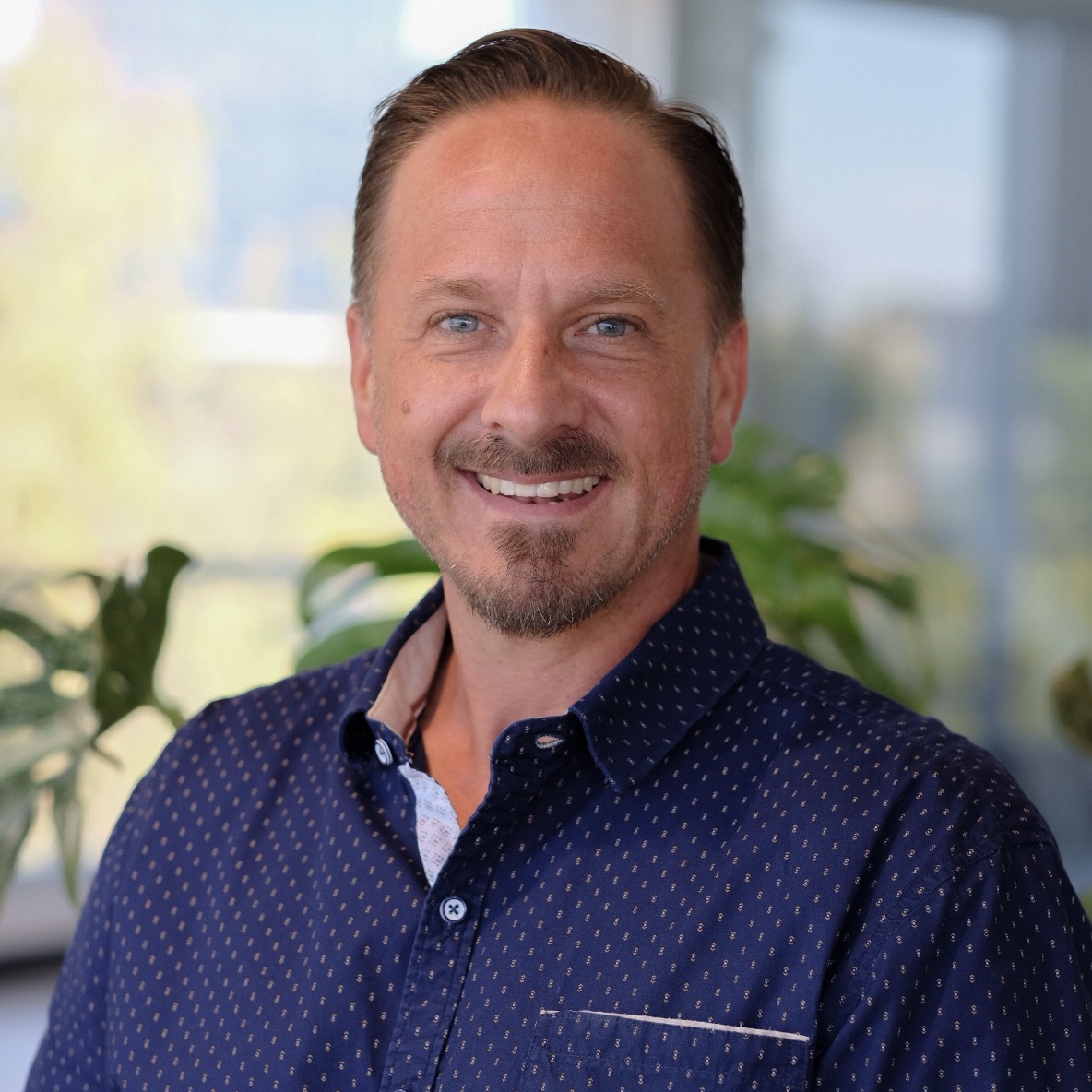
John Hoglievina leads Facility Management on the Operations team at NewLimit, bringing over a decade of hands on experience in space planning and emergency systems oversight within biotech and life sciences environments.
Before joining NewLimit, John managed high impact facility buildouts, lab decommissions, and cross functional initiatives at companies including Tempest Therapeutics, Nuvation Bio, and Portola Pharmaceuticals.

Jordan contributes to the Functional Genomics team in cargo and vehicle production and delivery.
Prior to NewLimit, Jordan first worked at Rejuvenation Technologies focusing on mRNA and LNP production for liver and lung indications. After, she worked at Turn Biotechnologies, reprogramming dermatology specific cells and operating in mouse models for skin.
Jordan received a Bachelor’s degree in Bioengineering with a focus on biomolecular engineering at Santa Clara University in 2021.

Julianne supports the on-site leadership team by managing office operations and providing key executive support, ensuring smooth daily functions and contributing to overall efficiency.
Prior to joining NewLimit, Julianne served as an Executive/Marketing Assistant at Salter Inc., where she supported senior executives and assisted with streamlining office processes.
Julianne earned her Bachelor's Degree in Business Administration from Sonoma State University.

Kelly supports day to day lab and office operations. Her role encompasses all things business operations ranging from lab inventory, facilities management, event planning to administrative duties.
Prior to New Limit, Kelly worked at Mori as their West Coast Operation Associate. During her time at Mori she built out effective office management procedures, led facility expansions, improved office logistics, and created productive vendor and project management systems.
Kelly received a B.S in Environmental Management from Cal Poly SLO.

Leo is a research associate on the functional genomics team. He helps build chemistries that enable single cell perturbation screens in primary cells.
Previously, Leo was with Novome Biotechnologies as part of the strain engineering team, pursuing a living medicine for chronic diseases.
Leo received a Bachelor's degree in Biomolecular Engineering with a minor in Bioinformatics from UCSC in 2020.

Lucas builds machine learning models to predict the outcome of targeted perturbations in single-cell experiments.
Prior to NewLimit, Lucas participated in research projects to develop novel computational methods for analyzing single-cell data. Lucas developed interpretable deep generative models integrating prior biological information about gene programs to shed light on cellular identity and how it is affected by perturbations.
Lucas received a PhD in computational biology from the University of California Santa Cruz, and a MS and Biotech engineering degree from the Strasbourg Graduate School of Biotechnology in France.

Megan oversees lab operations, ensuring that every scientist has the resources essential for optimal performance.
Prior to joining NewLimit, Megan worked as a lab manager at MycoTechnology in Denver, Colorado and contributed to tuberculosis research at Colorado State University.
Megan holds a bachelors degree in Biological Science and a masters degree in Microbiology from Colorado State University.

Meghan contributes to the Vascular team by developing in vivo models to test preclinical epigenetic reprogramming interventions for the treatment of kidney disease.
Before joining NewLimit, Meghan studied the role of gap junction proteins in injury induced vascular disease and vascular repair. Her work involved developing models of vascular injury to quantitatively measure endothelial wound healing in vivo and preclinical testing of novel peptide therapeutics.
Meghan earned her PhD in Translational Biology, Medicine and Health and her BS in Clinical Neuroscience from Virginia Tech.

Michael designs and implements combinatorial high-throughput screens to identify factors that can rejuvenate cells based on their gene expression and epigenetic profiles.
Prior to working at NewLimit, Michael built a novel high-throughput screening platform to study how combinations of epigenetic editing domains perturb the expression of target genes. Michael has also contributed to projects using model-based optimization to design cell-type-specific promoters and characterizing the spreading of epigenetically mediated gene silencing.
Michael received his Ph.D. from the UC Berkeley–UCSF Joint Program in Bioengineering and his B.S. in Bioengineering from Stanford University.

Nehal conducts lentiviral packaging and launches functional genomic screens as part of the Epigenetic Editing team, driving large-scale single-cell perturbation experiments.
Prior to NewLimit, Nehal worked at Pragma Bio in the Synthetic Biology team utilizing a biology-first, AI-enabled platform to discover and develop small molecules derived from the human gut microbiome, aiming to create novel therapeutics for immune-related diseases such as cancer and IBD.
Nehal received a B.S. in Molecular Biology at the University of Washington in 2022.

Nick is a Data Scientist on the Predict team helping build computational workflows and working with the Read and Write teams to design experiments to understand cell function.
He's worked across a wide range of biotechs prior to NewLimit such as at Invitae, Calico Labs, and TensixteenBio, where his primary scientific interest was helping improve drug development using novel lenses of biology.
Nick has a BA from Colorado College in Neuroscience.
In his spare time, he hangs out with his kids, trail runs, reads fantasy books and plays video games
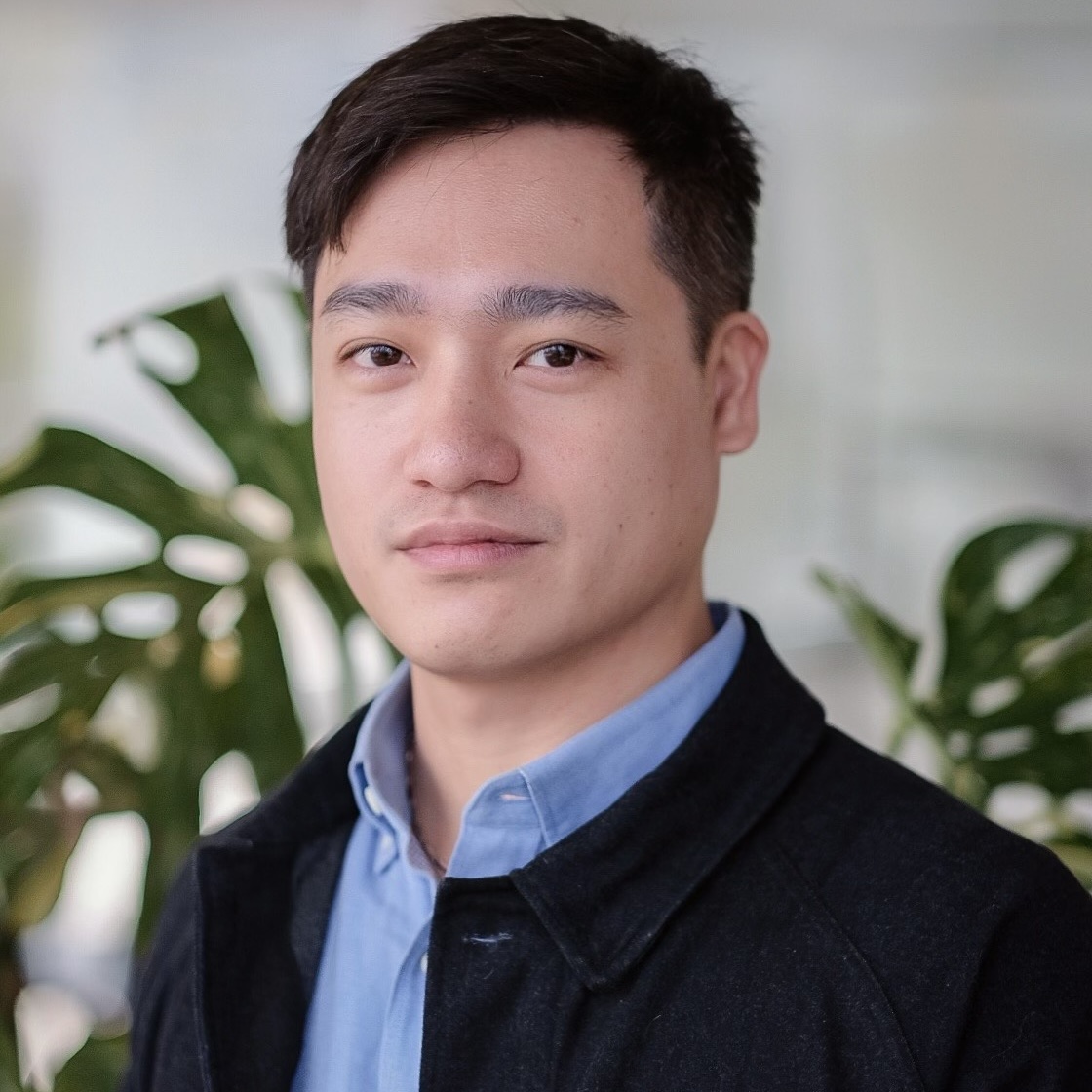
Qiming supports the research team at NewLimit by optimizing sequencing-based assays for cell rejuvenation studies.
Prior to NewLimit, Qiming conducted research at the University of California, Berkeley, focusing on the mechanisms underlying chromosome-wide gene regulation during dosage compensation.
Qiming recived a PhD in Molecular and Cell Biology from the University of California, Berkeley.
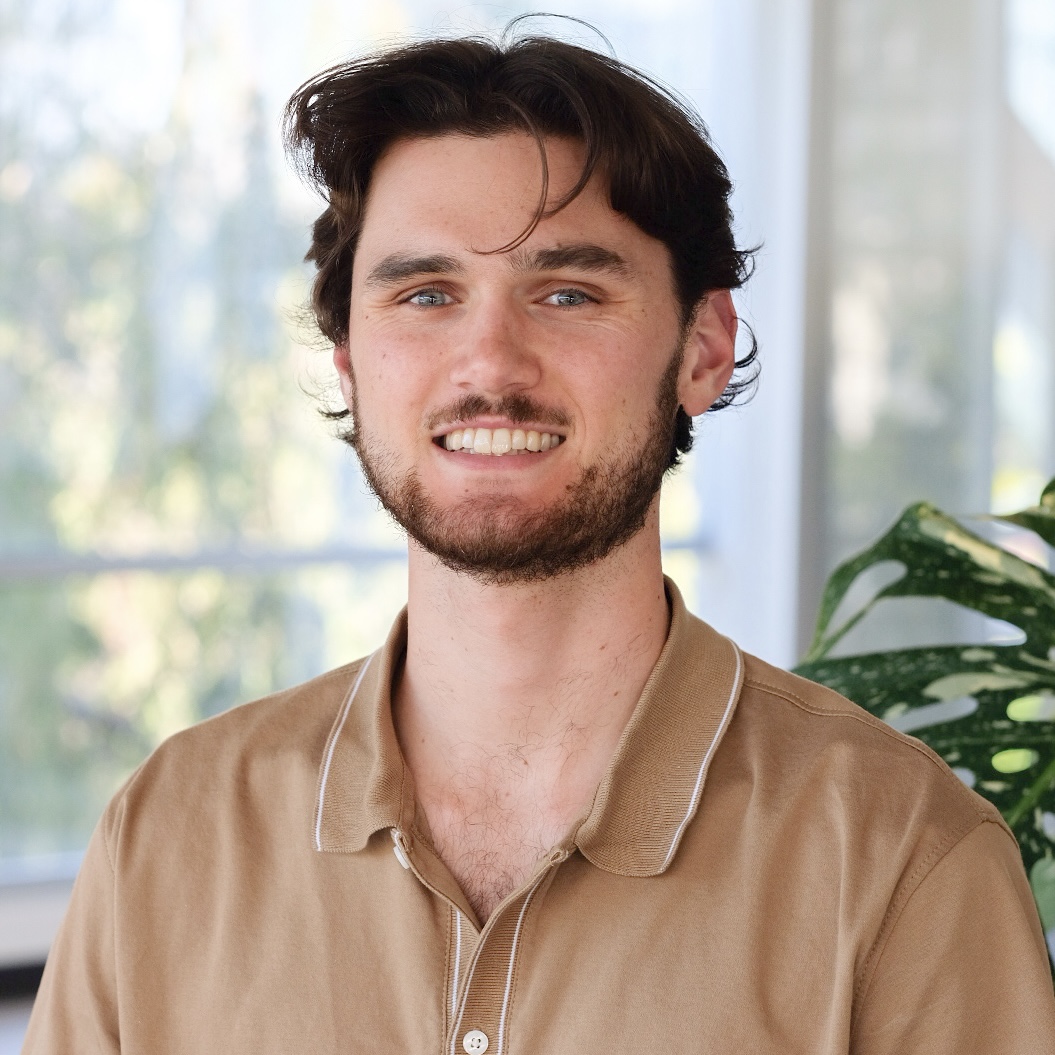
Quinn contributes to the Immunology team, working to establish in vivo models for testing reprogramming factors and to generate immune-targeted LNPs.
Quinn draws from his previous work at Deciduous Therapeutics where he performed in vivo screening of immunotherapies in age-related diseases models and produced liposomes to enhance immune cell activation.
Quinn earned his BS in Pharmacology at UCSB.
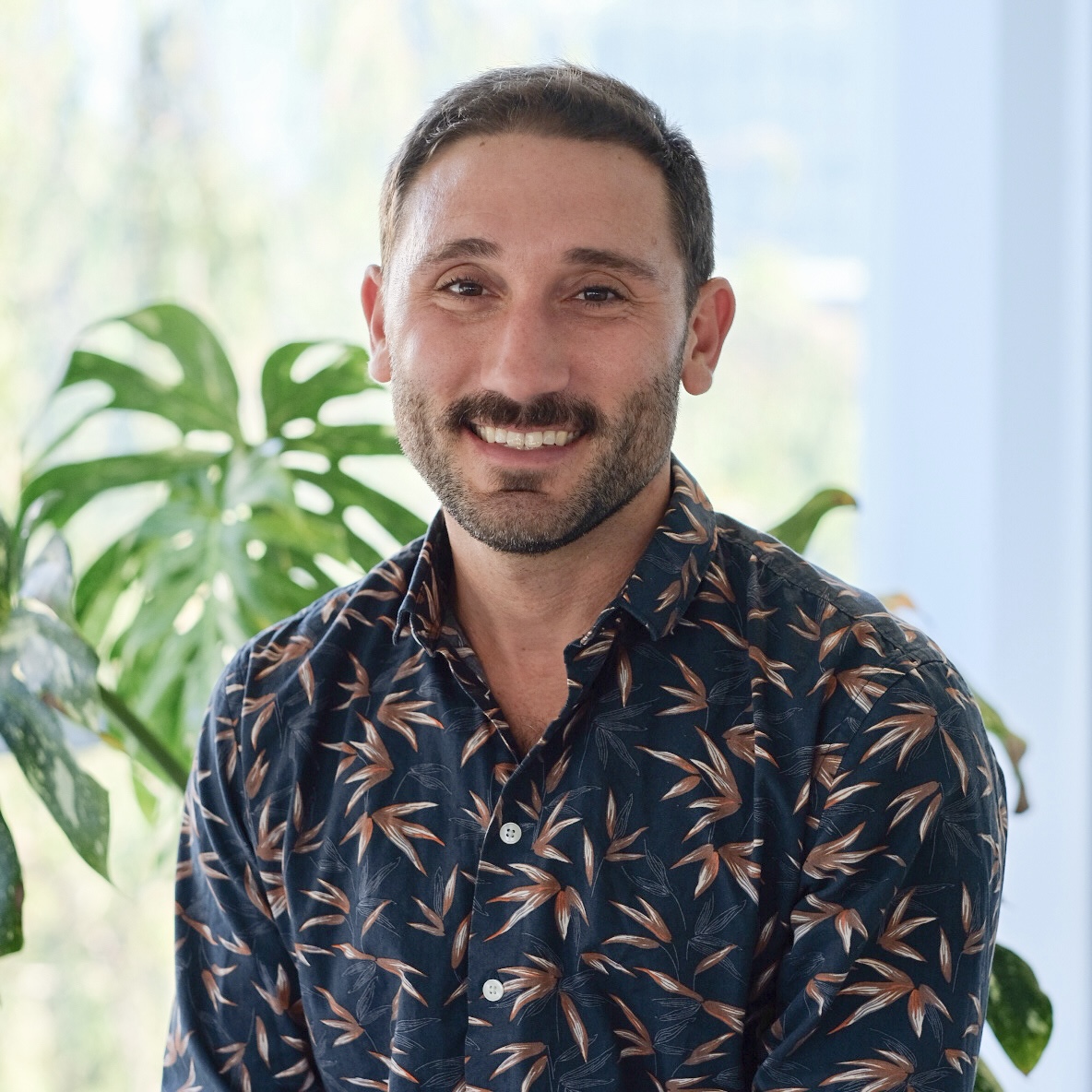
Robin is a computational biologist on the Predict team, where he develops methods and builds models to infer the effects of reprogramming payloads on cellular state and function from single-cell perturbation screens.
During his graduate studies, Robin applied single-cell CRISPR screens and ML methods to study the interplay of transcription factors and chromatin regulators in controlling cellular differentiation and tissue homeostasis in experimental models of human skin. Robin previously worked on the Cancer Dependency Map at the Broad Institute, where he built computational tools to predict genetic dependencies in cancer, correct technical artifacts in CRISPR screens, and infer gene function.
Robin holds a PhD in Genetics from Stanford University and a BA/BE in Biology and Engineering Sciences from Dartmouth College.

Ron leads Predict, NewLimit's computational biology and predictive modeling group, bringing deep expertise in statistical genomics, machine learning, and therapeutic development to advance epigenetic reprogramming. He's passionate about building scalable methods to integrate complex biological data and improve decision-making across the R&D pipeline.
Ron brings over 15 years of experience at the intersection of data science and medicine. Prior to NewLimit, he was SVP and Head of AI at Shape Therapeutics, where he applied generative AI to RNA therapeutics and delivery platforms. Previously, he led Cell Therapy Informatics & Predictive Sciences at Juno, Celgene, and BMS, driving efforts in manufacturing, biomarker development and clinical strategy for programs including Breyanzi and Abecma. His work has focused on translating high-dimensional data into models that improve the design and optimization of gene and cell therapies.
Ron earned a PhD in Genetics from the University of Chicago and completed a Damon Runyon postdoctoral fellowship at the University of Washington with Jay Shendure. He holds a BA in Biology and Japanese from Carleton College.

Rowena is exploring the therapeutic potential of reprogramming factors for the functional restoration of aged and diseased hepatocytes.
Prior to New Limit, Rowena studied the GDF15/GFRAL metabolic pathway at NGM Bio, guiding the clinical development of NGM120. Most recently, she led IND-enabling in vivo pharmacology studies at Kinnate Biopharma to progress their precision oncology pipeline.
Rowena completed her postdoctoral training at Genentech studying diabetes and insulin secretion. She received her PhD at UCSF in Developmental Biology and BS at San Francisco State University.

Ryan builds machine learning models to infer cell state and phenotype from the data generated by NewLimit’s large-scale perturbation screens.
Before joining NewLimit, Ryan worked at a small molecule drug discovery startup, where he built models to design and predict properties of novel kinase inhibitors.
Ryan completed his PhD in statistics at UC Berkeley working on theoretical machine learning, and previously received degrees in mathematics.
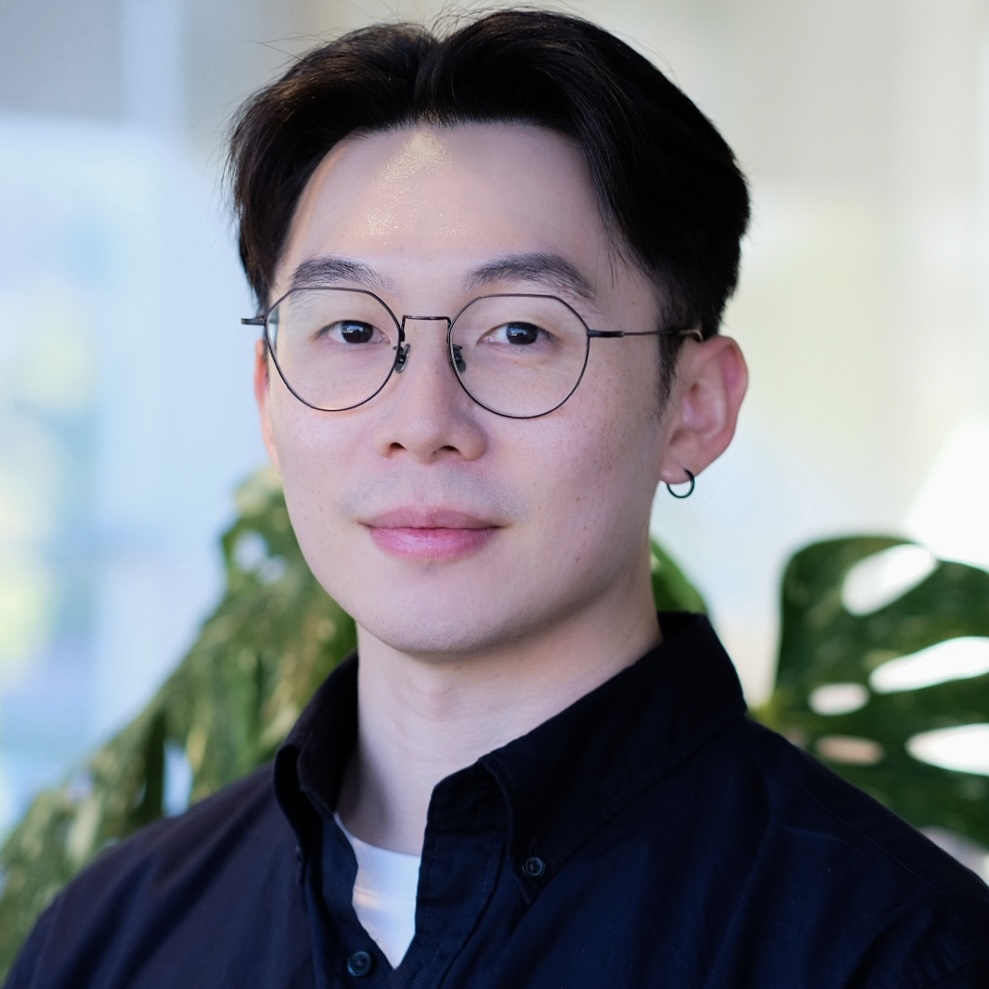
Sean is a member of the Metabolism team, where he develops in vivo mouse models to identify epigenetic factors that restore youthful function.
Before joining NewLimit, Sean studied how the immune system shapes somatic mosaicism in normal tissues. His work included developing in vivo screening platforms in the mouse liver and identifying factors that regulate immune surveillance of somatic clones.
Sean earned his Ph.D. in Cancer Biology from the University of Texas Southwestern.

Shea designs, builds, and maintains software solutions with a focus on bioinformatics pipelines and cloud infrastructure.
Prior to NewLimit, Shea worked as a Computational Biologist at Inscripta, Inc., where he contributed broadly to data science, machine learning, and bioinformatics efforts; supporting the development of a benchtop genome engineering instrument for microbes and mammalian cell biology program.
Shea holds a Ph.D. in Ecology & Evolutionary Biology from the University of Arizona and is an alumni of the Insight Data Science post-doctoral fellowship.
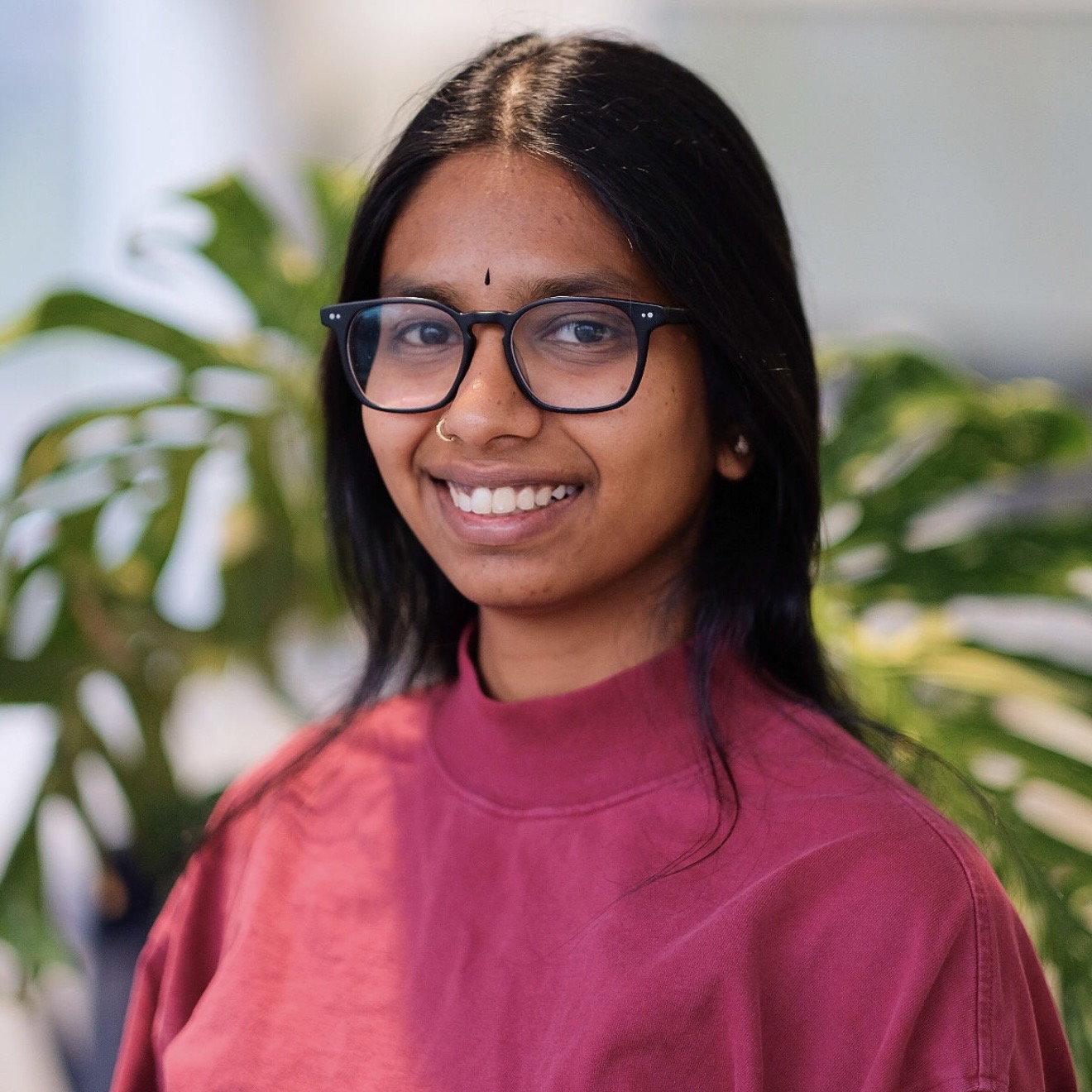
Sita contributes to the discovery engine at NewLimit by designing and executing functional genomic screens to identify and optimize epigenetic reprogramming factors.
Prior to NewLimit, Sita was a postdoctoral fellow at the Arc Institute where she contributed to projects aiming to identify genetic drivers of neuronal connectivity in high-throughput. During her graduate work at UC Berkeley, she developed a method to enable multi-kilobase mRNA editing and a system for point-of-care viral RNA detection.
Sita received her Ph.D. from the UC Berkeley–UCSF Joint Program in Bioengineering and her B.S. in Biochemistry from San Francisco State University.

Tyler works with the read team to develop and optimize sequencing based assays to capture cell state information from screens.
Previously, Tyler worked on the single cell sequencing platform at Vevo Therapeutics in attempt to generate a large-scale small molecule perturbation cell atlas to fuel drug discovery efforts.
Tyler received his Master's in Food Science from UC Davis and his Bachelor's in Chemical Engineering from Arizona State University.
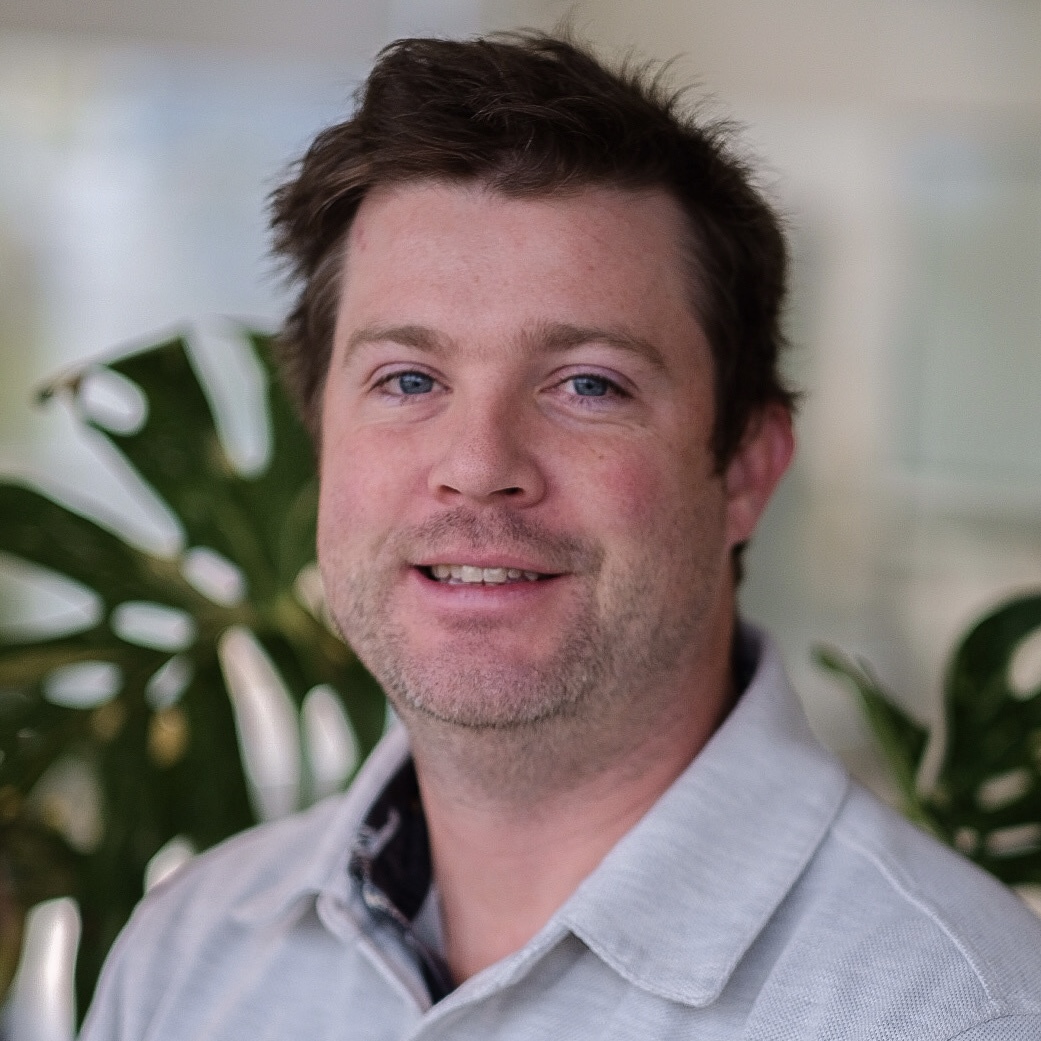
Wes develops in vitro models of epigenetic aging and executes high throughput screens to identify factors that rejuvenate cellular function.
Prior to joining NewLimit, Wes was a stem cell biologist at Maze Therapeutics. During his academic career, Wes’ experience has spanned hiPSC disease modeling, functional genomics, small molecule optimization and synthetic biology.
Wes received a PhD in Biomedical Science from Sanford Burnham Prebys Medical Discovery Institute and a BA in Biochemistry from the University of San Diego.

Yana facilitates discovery of aging interventions by optimizing high-throughput single cell screens.
Prior to NewLimit, Yana was a postdoctoral researcher at the University of California San Francisco, working to elucidate mechanisms of aging from the perspective of epigenetic regulation of ribosomal DNA.
Yana received a PhD in genetics from the University of California Davis.

Yu-Hsuan contributes to the development of in vivo mouse models for functional genomics screens of liver to identify epigenetic reprogramming factors.
Prior to NewLimit, Yu-Hsuan worked as a scientist at Nkarta, focusing on selecting lead gene edits for CAR NK cells and developing CAR viral potency assays. During her graduate work, Yu-Hsuan studied hepatic polyploidy, liver zonation, and performed in vivo screens to identify secreted growth regulating factors in liver.
Yu-Hsuan received a Ph.D. in Genetics, Development and Disease from the University of Texas Southwestern.

